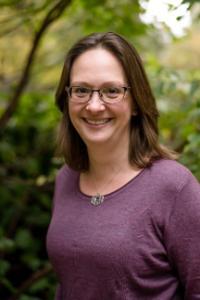Dr Sophie Carr
IAS Fellow at John Snow College, January - March 2025
Contact Details
- Home Institution email: sophie@baysconsulting.co.uk
- Durham email: sophie.carr@durham.ac.uk
- Durham Tel: +44 (0) 191 33 44692 (internal. 44692)
Dr Sophie Carr is the founder and owner of Bays Consulting; the Vice President of the Royal Statistical Society for Education and Statistical Literacy; sits on the executive committees of both the International Centre for Mathematical Sciences and The Academy for the Mathematical Sciences and the general council for the Institute of Mathematics and its Applications. She is also the World’s Most Interesting Mathematician. Having trained as an engineer, she started work as an aeronautical engineer working in flight trials where she became interested in information overload. This led to her studying part-time (whilst still working) for a PhD in The Application of Bayesian Belief Networks to the analysis of Military Intelligence under the supervision of Dr Ken McNaught. During her working career Dr Carr has used her multidiscipline knowledge to lead and solve complex mathematical and data science projects, including developing predictive algorithms to forecast food sales; predicting the need for foodbank usage and the risk of cold, mould and damp in homes without the need for sensors. She has also worked with academics from humanities at the Arts Council which looked to assess the impact of the Artsmark award: a scheme which raises the profile of arts and cultural education and embeds creativity within the curriculum. The results of their findings have been used to further strategic decision making of the Arts Council. For her IAS Fellowship at Durham University for the period January-March 2025, Dr Carr will collaborate with Dr David Chivers (Economics) and Professor John Paul Gosling (Mathematical Sciences) on a project entitled ‘Humans and Numbers. Although numbers often represent something real and tangible, it is up to us as humans to interpret and use them. How we do this differs from person to person, between contexts, and over time. Understanding how and why these differences occur is of critical importance for academics, science communicators, and policy makers. For example, when presented with statistics such as the risks of Covid-19 or self-tracking data, how do we interpret this information? Do we trust it? Does it affect how we behave? These questions are not only affected by our own numeracy but also by our backgrounds and experiences, cultures and communities, and the era we live in.
Events
IAS Seminar – 24 February 2025 – 1.00 – 2.00pm. IAS Seminar Room, Cosin’s Hall, Institute of Advanced Study
Numbers That Shape Us: Trust, Interpretation, and Decisions
Registration is essential. Details here.
IAS Public Lecture – 25 February 2025 – 5.30 – 6.30pm, The Hub, John Snow College.
Numbers and People: A Shared Language or a Divided Story?
Further information here.
Further Information
Links to more information about this Fellow and Fellowship


/prod01/prodbucket01/media/durham-university/research-/research-institutes/institute-of-advanced-study/43486-hero.jpg)
